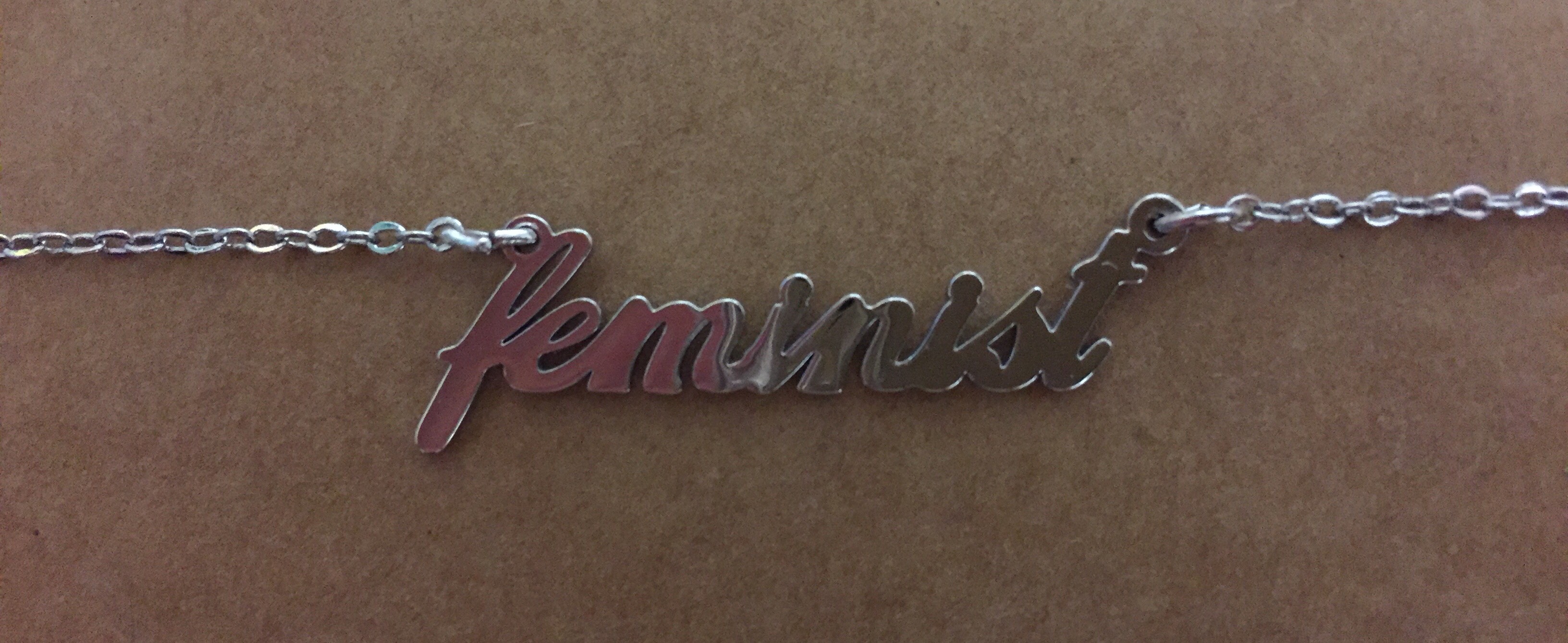Bailey Shea
I’ve always been a feminist, but haven’t always had experience to back it up. Growing up in generally-liberal Connecticut, I didn’t always feel like I needed to prove my strength or defend women. By reading books and listening to music, I realized that many women (including those marginalized due to their race, ethnicity, religion, or sexual orientation) don’t have the same experience. Though passionate book clubs turned into marches and rallies, I’m still incredibly thankful for that early exposure, and try to pass these pieces on. Here are the top ten pieces of literature and media that confirmed that I was a feminist:
1. Harry Potter series by J.K. Rowling
Even though the Harry Potter series centers around a male protagonist, reading the series set me on the path of my feminist journey. The first day I started reading The Sorcerer’s Stone was the day I started identifying myself as a smart, book-loving, nerdy feminist. Even without my “life-changing” experience, I highly doubt that Harry would have made it to the seventh Horcrux without Hermione, Ginny, Professor McGonagall, Luna, or his mother Lily.
2. I Know Why the Caged Bird Sings by Maya Angelou
This book is probably the only one I’ve read cover-to-cover multiple times. The autobiography of Angelou’s adolescence tackles the intersections of race, gender, and trauma. Marguerite’s resilience taught me to remain strong despite setbacks.
3. Reading “Lolita” in Tehran by Azar Nafisi
Reading “Lolita” in Tehran was one of my first times being exposed to Muslim experiences. I frequently find myself thinking about Nafisi’s experiences during the Iranian Revolution, especially during current discussions about the travel ban and freedom of hijabs. By reading about the cultural and historical contexts, as well as the experiences of Nafisi and her friends, I realized that a person’s own experience is vital how they define feminism.
4. Persepolis by Marjane Satrapi
I read Persepolis soon after Reading “Lolita” in Tehran. It was interesting to see another female perspective of the Iranian Revolution, this one coming from a young child growing up soon after the start of the revolution. Despite growing up in a world that policed women’s lives, young Marji stuck with the feminist activist ideals her mother taught her. In a post-9/11 political climate, it is also important to note how the graphic novel humanizes Muslims by showing that Marji’s fears and interests are ultimately similar to those of any other child.
5. The Handmaid’s Tale by Margaret Atwood
During high school class discussions of The Handmaid’s Tale, I was labeled a “feminist” (and not in a good way) for arguing with boys that dystopian Gilead is not as far from reality as some may want to believe. Four years later, I’m incredibly thankful that I had the chance to read the book as early as I did. It turns out that my peers didn’t end up effectively insulting me — they just called out facts.
6. Fun Home: A Family Tragicomic by Alison Bechdel
This list wouldn’t be complete without a graphic novel written by the woman who co-created the Bechdel Test. The graphic novel, which has since been turned into a musical, explores Bechdel’s childhood, her relationship with her father, and their respective struggles with their homosexuality.
7. We Should All be Feminists by Chimamanda Ngozi Adichie
We Should All be Feminists is so small, you should probably be carrying it in your bag, car, or pocket. In this TED Talk-turned-book, writer Chimamanda Ngozi Adichie explores her journey to embracing the feminist label. “Feminist” is so often turned into an ugly word, making it difficult to want to identify with it. Ultimately, everyone should be a feminist because a feminist is simply a “person who believes in the social, political, and economic equality of the sexes,” and if we’re being honest that isn’t that hard to get behind. As if that shouldn’t be reason enough to read the essay, Adichie’s TED Talk is sampled on “***Flawless” by Beyoncé.
8. Lemonade by Beyoncé
Beyoncé’s audio and visual album Lemonade helped define my feminism and general girl power during my first years of college. Released in the spring of my freshman year, the album became my handbook for navigating relationships, including my refusal to take shit from college boys. The visual album also uses imagery from African culture and promotes work by women of color, like poet Warsan Shire. Lemonade is then not just a feminist album, but an intersectional one (meaning it’s one of my favorite things).
9. This Common Secret: My Journey as an Abortion Doctor by Susan Wicklund
Regardless of your opinion on abortion, This Common Secret exposes a side of the women’s health sector that many fail to consider. In the autobiography, Wicklund shares her experiences with dodging violent protesters, traveling to multiple clinics in the span of a week to keep as many centers open as possible, and grieving the deaths of other practitioners who were assassinated for doing their job. Even if abortion is not something you are in favor for, the book helps humanize those risking their lives to serve patients.
10. A Story Like Mine by Halsey
I can’t tell you how many times I’ve watched this and cried over the span of just two weeks. Halsey’s poem shows just how prevalent rape and abuse is. Age, social status, profession, or location doesn’t matter — Many, if not most, women have similar experiences in their lifetime. We need to encourage women to keep sharing their experiences, listen, and be an advocate. Not all women have a platform like Halsey and many other celebrities. No matter what, their voices still deserve to be heard.
If you have a story like Halsey’s that you need to have heard, you can find resources with the National Sexual Assault Hotline at 1-800-656-4673. Resources are also available for UConn students at CMHS, Student Health Services, and the Women’s Center.

